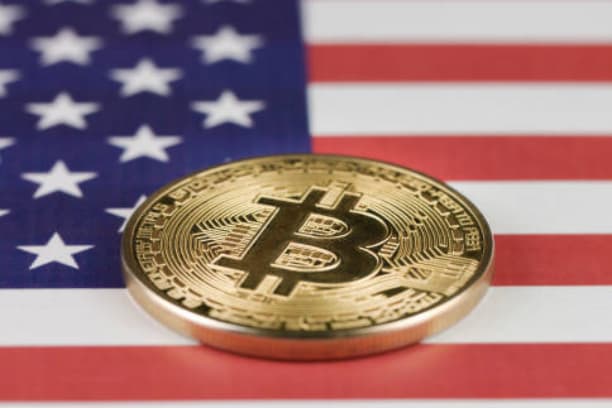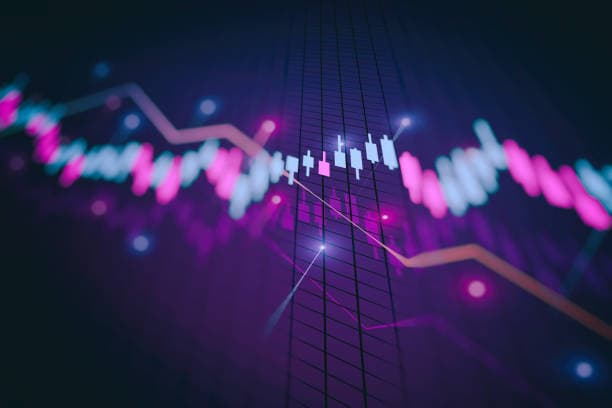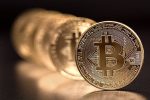Is Bitcoin Digital Gold? Why is it closer to gold than fiat money?
When we talk about Bitcoin, many people think of it as 'digital gold', but is that really what it is? In today's digital economy, Bitcoin is considered a revolutionary asset with characteristics that make it closer to gold than traditional money. This article will delve into how Bitcoin possesses similar value-storage properties as gold and why it may be more attractive than fiat currencies. We will analyze the uniqueness of Bitcoin from a number of perspectives, as well as its role and potential for the future.

Bitcoin and Gold: What are the Similarities?
The similarities between Bitcoin and gold begin with the fact that they are both scarce assets. Gold is considered a natural resource with a limited supply, while Bitcoin is limited by blockchain technology to an ultimate supply of 21 million pieces. This limitation on supply gives Bitcoin the characteristic of "digital gold". Both Bitcoin and gold are regarded as instruments of long-term value storage, especially in times of economic instability or inflationary pressures, and both are able to maintain a relatively stable value.
Stored Value: Why Bitcoin is More Like Gold Than Currency
The scarcity of Bitcoin makes it a better asset for storing value than the unlimited printing and volatility of traditional currencies. While the value of traditional currencies fluctuates according to the monetary policies of central banks and the risk of inflation, gold and Bitcoin are more resistant to inflation. The anti-inflationary nature of Bitcoin has made it a useful tool for many investors to hedge against currency risk as central banks around the world have been printing large amounts of money and over-issuing currencies over the past few years, causing the fiat currencies of many countries to depreciate in value.
Decentralization: How Bitcoin is Challenging Traditional Currency Systems
Another thing that makes Bitcoin more like gold is its decentralized nature. While traditional currencies are issued and managed by governments and central banks, the creation and trading of Bitcoin relies entirely on a decentralized blockchain network. This means that Bitcoin is not subject to the policies of a single institution or country, and like gold, it is a globally recognizable asset. This decentralized feature makes Bitcoin a borderless asset, especially in politically or economically unstable regions.
Bitcoin's market performance: can it really take the place of gold?
Although Bitcoin shows similar characteristics to gold in many ways, there is still much debate as to whether it can completely replace gold. In terms of market performance, Bitcoin is far more volatile than gold. The high volatility of Bitcoin's price makes it not entirely suitable as a tool for preserving value in the short term. In contrast, the price of gold, a store of value for thousands of years, is relatively stable and less susceptible to a single event. Therefore, while Bitcoin has the potential to become a digital alternative to gold in the long term, it is unlikely that it will be able to fully replace gold in the short term.
Market Acceptance and Trust: Bitcoin Needs Time to Prove Its Value
Another challenge is the market acceptance and trust of Bitcoin. Gold has been regarded as a reliable asset since ancient times and has been recognized globally. In contrast, Bitcoin, as a relatively new asset, needs time to build up its market acceptance. Although Bitcoin's market size and trading volume have grown, it still faces challenges from government regulation and market uncertainty. In the future, as the Bitcoin market matures, it may gradually establish a trust system similar to that of gold.

The Future of Bitcoin: Could It Become the Next Generation of Asset Preservation?
As the global financial environment continues to change, the future development of Bitcoin has attracted widespread attention. Although Bitcoin is still facing many challenges, its technological innovation and decentralization advantages make it possess great potential for growth. Many experts predict that as blockchain technology matures and the Bitcoin market expands, Bitcoin could become a new generation of asset preservation tool and exert greater influence globally. In particular, with global inflationary pressures and increasing instability in central bank monetary policy, Bitcoin could become an effective tool to combat these issues.
Blockchain Technology Development: Potential and Challenges of Bitcoin
The future of Bitcoin depends not only on market demand, but also on the further development and popularization of blockchain technology. As the technology evolves, Bitcoin's transaction efficiency, scalability and security are expected to improve further, which will enable it to play a more important role in the global payment system. Bitcoin still needs to overcome the technical challenges of network congestion and high transaction costs before it can truly realize its potential as a global asset preservation tool.
Frequently Asked Questions Q&A
Q1: Does the price fluctuation of Bitcoin affect its stability as a storage device?
A1: Yes, Bitcoin's price volatility is high, which makes it not entirely suitable for use as a stable store of value in the short term. In the long run, Bitcoin's scarcity and decentralized nature give it the potential to retain its value. As the market matures, volatility may be reduced.
Q2: Can Bitcoin replace gold as a mainstream asset?
A2: Although Bitcoin has similar characteristics to gold, such as scarcity and resistance to inflation, gold, as an asset storage vehicle for millennia, still has a deep market base and stability. Bitcoin may become a digital alternative to gold in the future, but it still needs time to prove its position in the market.
Q3: Why is Bitcoin's blockchain technology so important?
A3: Blockchain technology is the foundation of Bitcoin, providing a decentralized transaction settlement method that ensures secure and transparent transactions. With the further development of blockchain technology, Bitcoin's transaction efficiency and scalability are expected to increase, further enhancing its potential as an asset preservation tool.
I hope this article has helped you better understand the similarities between Bitcoin and gold, and the role it may play in the future. If you have any further questions, please feel free to contact us!














